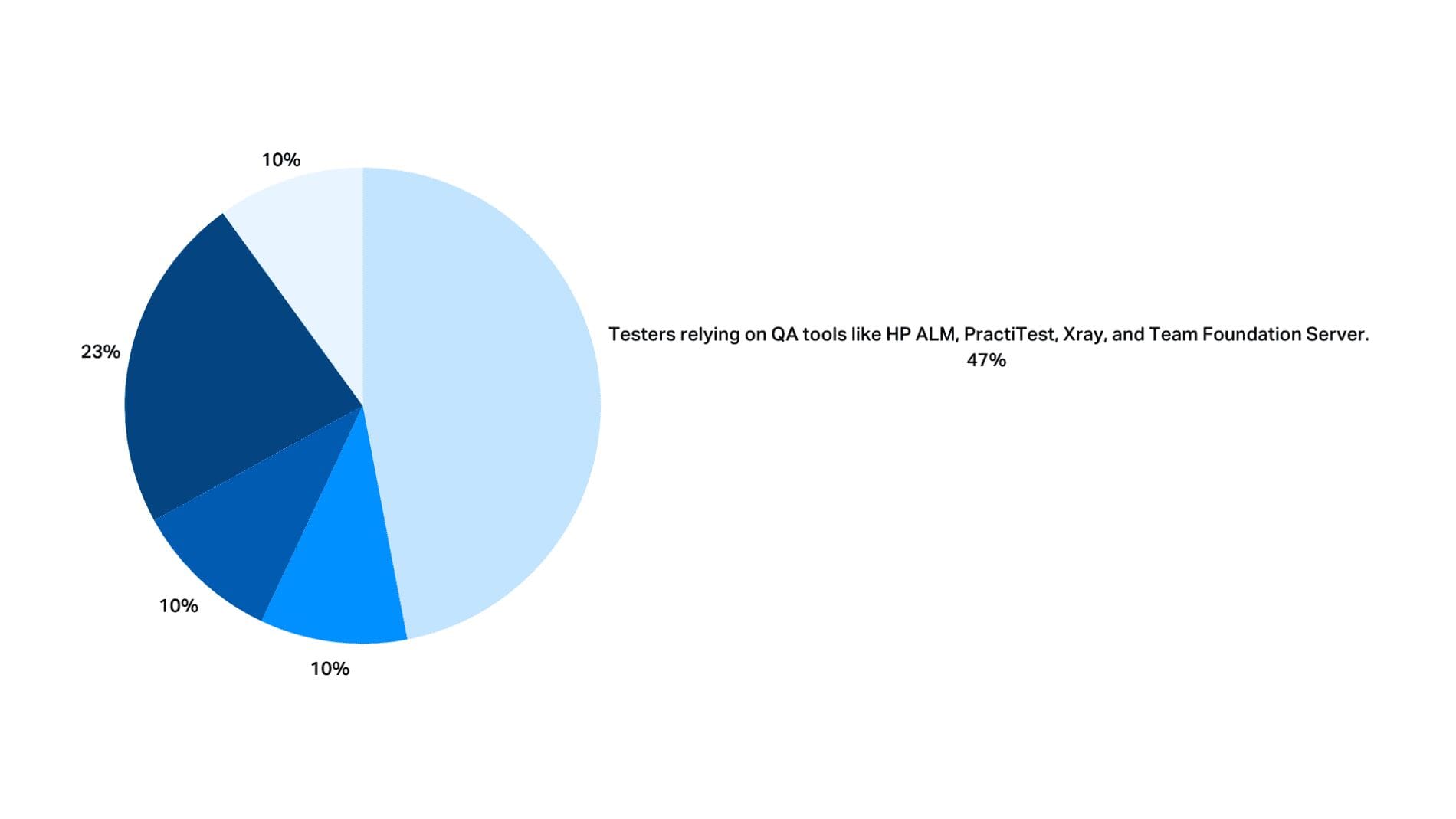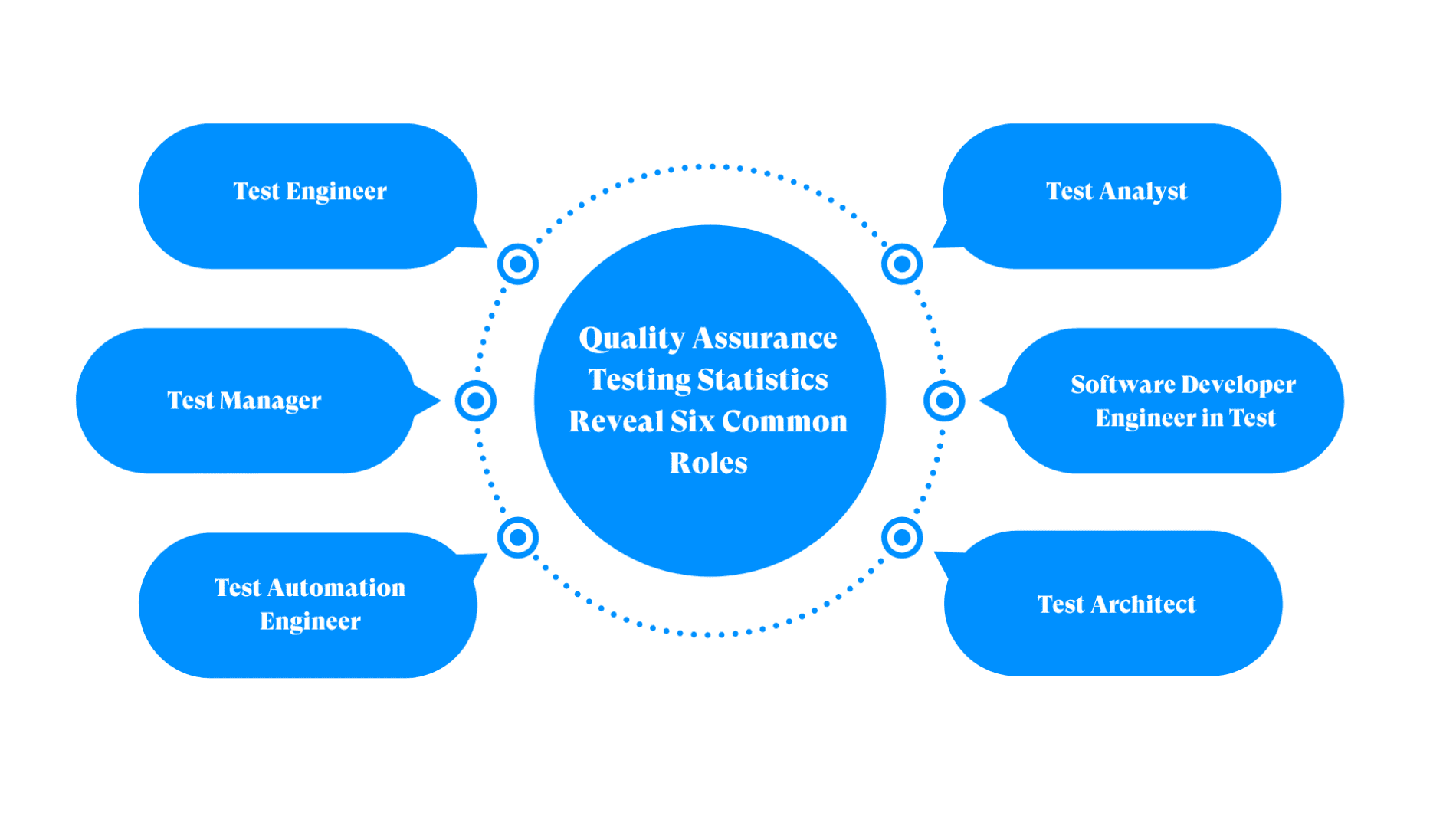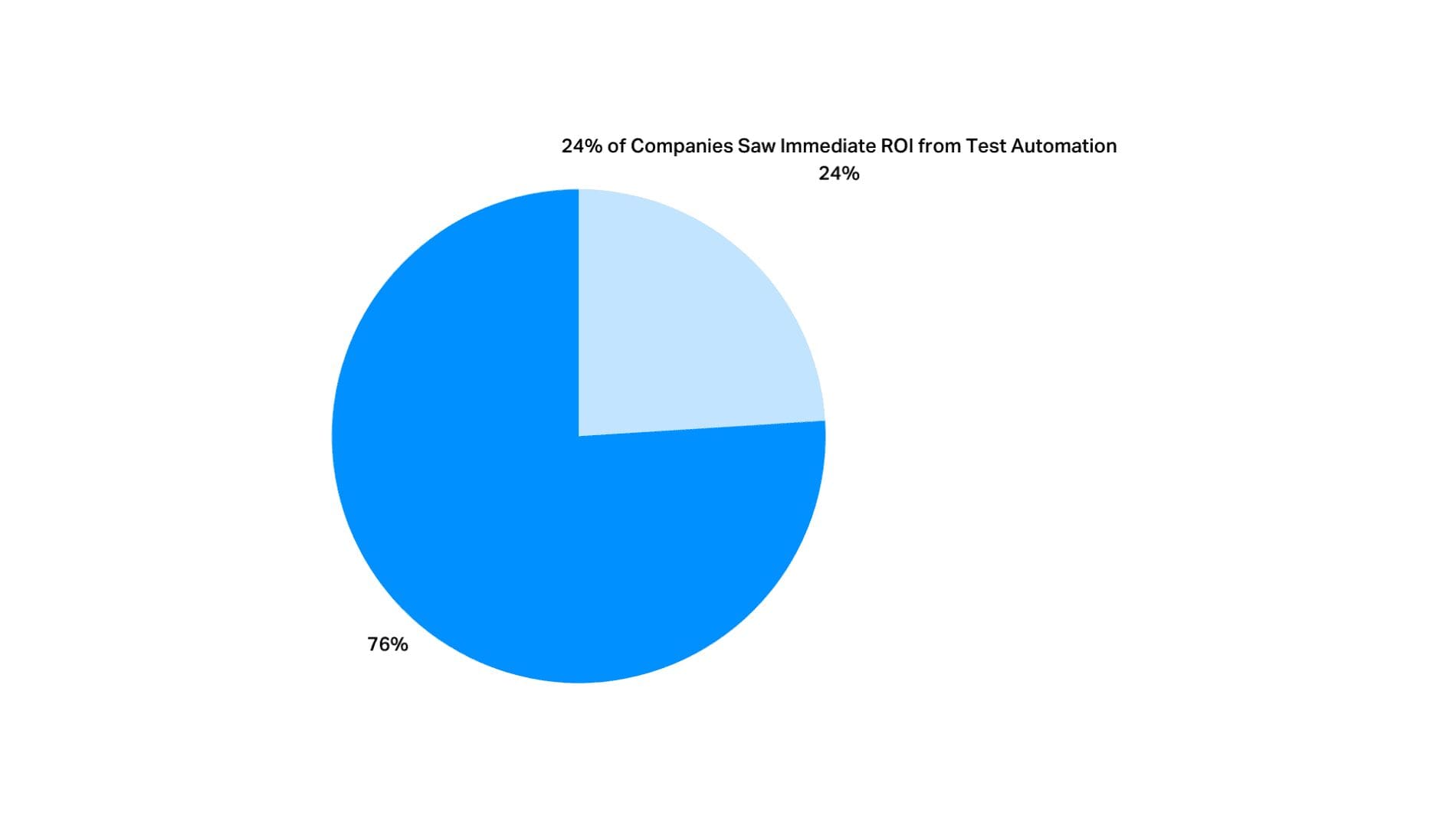21 Essential QA Statistics For DevOps

In the fast-paced world of software development, quality assurance (QA) and DevOps are crucial for delivering reliable and high-performing applications.
This article covers 21 essential QA statistics highlighting the importance of DevOps testing. The software testing industry now exceeds $45 billion, reflecting its critical role.
Key trends include continuous testing, automation, and advanced tools. These statistics showcase the practices that enhance software development.
1) The Software Testing Industry Surpasses $45 Billion in Market Size
The software testing industry has surpassed $45 billion in market size. This milestone underscores the essential role of testing in ensuring software reliability and performance.
For DevOps, it highlights the importance of continuous testing in the development pipeline. The industry’s growth reflects the increasing complexity of software systems and the necessity of rigorous testing to prevent errors and downtime.
2) Bug Reports: The Most Commonly Used Testing Documentation
Bug reports are the primary form of testing documentation. Approximately 47% of testers rely on QA tools like HP ALM, PractiTest, Xray, and Team Foundation Server.
This dependence highlights the importance of efficient issue tracking in the DevOps lifecycle. Utilizing these tools helps teams streamline workflows, maintain software quality, and meet delivery deadlines.

3) Nearly Half of the Developers Rely on Issue Tracker Solutions, with Jira Being the Preferred Tool
Approximately 44% of developers regularly use issue tracker solutions. Due to its robust features, Jira is the preferred tool for 68% of developers.
GitHub is second, favored by 26% for its code collaboration capabilities.
Trello, GitLab Issue Board, Redmine, Microsoft TFS, YouTrack, and Asana also play significant roles. These tools are essential for efficient DevOps workflows.
4) AI’s Projected 37.3% Growth in Usage from 2023 to 2030
Forbes reports that AI usage will grow by 37.3% from 2023 to 2030. This significant increase underscores AI’s potential in testing within DevOps.
As AI advances, it can automate complex testing tasks, improve accuracy, and speed up development cycles. This evolution is crucial for enhancing software quality and delivery efficiency.
5) The Expanding Internet of Things (IoT) Trend Prompts a Shift in Software Testing Towards IoT Testing
The rise of IoT devices requires focused software testing to ensure functionality and security. Over 10% of venture capital funding now targets IoT, signaling significant growth in this field.
This trend highlights the need for DevOps practices to manage the complexities and scale of IoT systems, ensuring efficient and reliable operations.
6) 30% of Developers Prefer Test Automation Over Manual Testing
Software Testing Help and Bytebeam report that 30% of developers favor test automation over manual testing. This preference is crucial in DevOps.
Automated testing accelerates development cycles and enhances efficiency. It reduces time spent on repetitive tasks, allowing developers to focus on critical aspects of software development. This leads to quicker releases and more reliable software.
7) 54% of Developers Turn to DevOps for Faster Development Cycles
Software Testing Help reports that 54% of developers now use DevOps for faster development cycles. This approach reduces the time from development to operations.
It enables quicker product releases to the market. Adopting DevOps enhances collaboration and streamlines workflows, ensuring efficient delivery of new features and fixes.
8) 44% of IT Companies Have Automated 50% of Their Testing Processes
This statistic highlights the widespread use of automated testing in the IT industry. By automating half of their testing, companies enhance efficiency and reduce errors.
This practice is crucial for achieving the CI/CD goals central to DevOps. The trend demonstrates the importance of automation in modern software development.
9) Quality Assurance Testing Statistics Reveal Six Common Roles
Quality assurance testing involves six key roles. These roles are Test Engineer, Test Analyst, Test Automation Engineer, Software Developer Engineer in Test, Test Architect, and Test Manager.
Each role addresses specific testing needs and expertise. They ensure comprehensive software quality. Integrating these roles in DevOps enhances continuous integration and delivery. This leads to improved software reliability.

10) Only 5% of Companies Fully Automate Testing
Only a small fraction of companies have fully embraced automated testing. This shows that most organizations still depend heavily on manual processes.
In DevOps, increasing automation is key to speeding up releases and maintaining high code quality.
11) Majority Use a 75:25 or 50:50 Manual to Automation Ratio
Two-thirds of software companies use testing with a significant manual component. This reliance on manual testing can slow down development.
DevOps aims for more automation to improve efficiency and consistency in software delivery.
12) Only 9% Exclusively Perform Manual Testing
Just 9% of companies rely solely on manual testing. This practice is declining as the industry moves towards automation.
For DevOps teams, reducing manual testing is crucial for streamlining processes and improving deployment reliability.
13) Future Trends: Up to 73% Aim for Balanced Automation
Nearly three-quarters of companies plan to balance their testing strategies with a 50:50 or 25:75 manual-to-automation ratio.
This shift shows the benefits of automated testing in speeding up development cycles and enhancing software quality. Adopting automated testing tools and practices is becoming more important for DevOps.
14) Around 14% Aspire to Eliminate Manual Testing
Around 14% of companies aim to eliminate manual testing. This goal aligns with DevOps’ objectives of maximizing automation for continuous delivery and integration.
Fully automated testing enhances agility, reduces time-to-market, and ensures consistent software releases.
15) 24% of Companies Saw Immediate ROI from Test Automation
About one-quarter of companies investing in test automation saw immediate returns on investment (ROI). This rapid payoff demonstrates the efficiency of automated testing in DevOps.
Another 24% reported increased ROI within six months, while 28% saw positive ROI within a year. Only 9% of respondents reported unsuccessful outcomes, highlighting the overall success of test automation.

16) Expenditure on Cybersecurity Surpassing $133.7 Billion in 2022
Cybersecurity spending is set to exceed $133.7 billion in 2022. The threat of data breaches drives the need for constant security testing. This is crucial for maintaining robust defenses in DevOps.
17) Global Mobile Application Market Projected to Reach $407.31 Billion by 2026
The mobile application market will reach $407.31 billion by 2026. This growth highlights the need for thorough testing. In DevOps, automated testing ensures app reliability and performance.

18) 44% of IT Organizations Automated 50% of Their Testing in 2020
In 2020, 44% of IT organizations automated half of their testing. Automation in DevOps allows faster and more accurate testing. It also provides continuous feedback, improving efficiency.
19) Automated Test Cases Constitute 50% in Nearly Half of RWS Surveyed Companies
Automated test cases make up 50% of tests in nearly half of surveyed companies. This shows the importance of automation in DevOps. It saves time and costs while ensuring precision and consistency.
20) The Boost in QA Budgets is Credited by 52% of IT Teams Due to the Growing Number of Releases
52% of IT teams attribute higher QA budgets to more frequent software releases. Continuous improvement and development are vital for customer retention.
The digital revolution requires integrating new test cycles. This ensures reliability and quality in frequent updates, aligning with DevOps best practices.
21) 70% of High-Performing DevOps Teams Integrate Automated Testing
High-performing DevOps teams integrate automated testing into their workflows 70% of the time. This practice enhances efficiency and reduces errors, ensuring faster and more reliable software releases.
Automated testing is crucial for maintaining the quality and consistency of frequent updates, making it a cornerstone of successful DevOps implementations.
Conclusion
These 21 QA statistics highlight the crucial role of testing in the DevOps ecosystem. The industry’s growth and reliance on automation, AI, and advanced tools demonstrate the shift towards more efficient and reliable software development processes.
Embracing these trends ensures quicker releases, enhanced software quality, and robust performance. For businesses, integrating these QA practices within DevOps frameworks is essential for staying competitive and meeting market demands.
As the software landscape evolves, prioritizing effective QA strategies will be key to maintaining high standards and achieving operational excellence.

Elevate your software quality with Testlio, the premier QA software testing company. Established in 2012, Testlio’s network includes over 190 full-time experts, a global network of over 10,000 skilled freelancers in 150+ countries, and 600k+ devices. Reach out to us today and experience our top-rated services, trusted by clients with an average 4.7 G2 review rating.
Sources:
https://www.strongdm.com/blog/devops-statistics
https://erp.today/myth-busting-your-test-automation-beliefs
https://www.cloudzero.com/blog/devops-statistics
https://techreport.com/statistics/devops-market-statistics-2024
